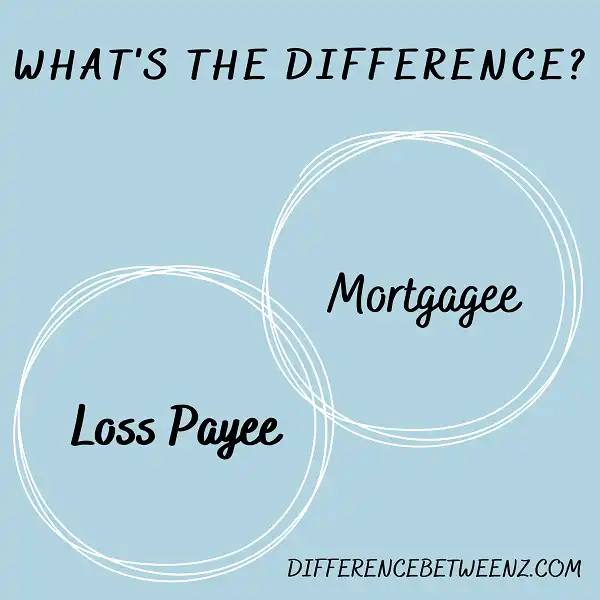When you take out a mortgage on your home, the bank or lending institution is usually listed as the mortgagee. As the name suggests, this party has a legal interest in the property securing the loan and can foreclose on it if you default on your payments. But what about when your home is damaged or destroyed in a natural disaster? Who makes decisions about whether to rebuild and how to allocate insurance proceeds? That’s where the loss payee comes in.
What is Loss Payee?
A loss payee is a term used in the insurance industry to refer to a person or entity that is entitled to receive payment in the event of a loss. In most cases, the loss payee is the lender on a loan or lease agreement.
- This means that if the borrower defaults on the loan or lease, the loss payee will be compensated for the loss. The loss payee provision is often included in insurance contracts to protect the lender’s interest in the property.
- For example, if a borrower takes out a loan to purchase a car and then defaults on the loan, the lender would be protected by the loss payee provision in the insurance contract. This would ensure that the lender would receive compensation for the loss even if the borrower did not have enough insurance to cover the full amount of the loan.
- Loss payees can also be used to protect other types of contracts, such as construction contracts. In this case, the loss payee would be compensated if the contractor failed to complete the project. Loss payees are typically named in insurance policies, but they can also be named in other types of agreements.
For example, a landlord may require that a tenant name them as a loss payee on their renter’s insurance policy. This would protect the landlord’s interest in case of damage to the property caused by the tenant.
What is Mortgagee?
The mortgagee is a term used in relation to a mortgage, whereby the lender (the party who has lent the money) is referred to as the Mortgagee. The Mortgagee, therefore, has a financial interest in the property which is being used as security for the loan. In most cases, the Mortgagee will be a bank or building society, but it could also be an individual.
If the borrower defaults on their payments, the Mortgagee may take possession of the property in order to sell it and recoup their losses. Mortgagees will typically only offer loans to borrowers who they deem to be low-risk, and who have a good credit history. This is because the Mortgagee is taking on a significant amount of risk by lending money against a property.
Difference between Loss Payee and Mortgagee
Loss payee and mortgagee are two terms that are often used interchangeably, but there is a subtle difference between the two. A loss payee is someone who has an interest in the property being insured.
- For example, if you take out a loan to buy a car, the bank that provides the loan is typically listed as the loss payee on the insurance policy. This ensures that if the car is damaged or stolen, the bank will be compensated for its loss.
- A mortgagee, on the other hand, is someone who has a security interest in the property being insured. In other words, they have a financial stake in making sure that the property is well-maintained and protected.
- If you have a mortgage on your home, the lender is typically listed as the mortgagee on your homeowner’s insurance policy. This ensures that if your home is damaged or destroyed, they will be compensated for their loss.
While both Loss payees and mortgagees have a financial interest in the property being insured, loss payees are typically lenders who have provided financing for the purchase of the property, while mortgagees are typically lenders who have provided financing for the construction of the property.
Conclusion
The difference between a loss payee and a mortgagee may seem like semantics, but it’s an important distinction to understand. A loss payee is someone who is named on the policy as the party responsible for receiving payment if the property is lost. This protects the lender in case of foreclosure or other default on the loan. The mortgagee, on the other hand, is the person or company that actually holds the mortgage on the property. Understanding these roles can help you when considering taking out a home loan or trying to protect your investment in a property.


